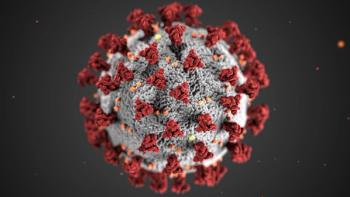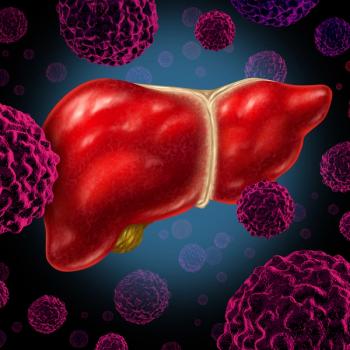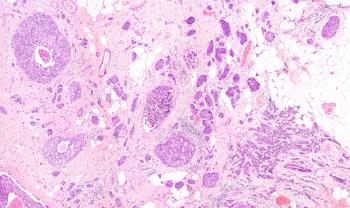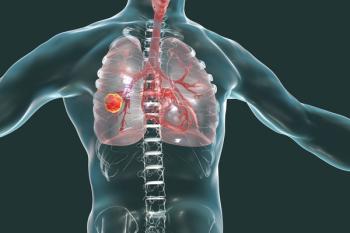
Examination of tisotumab vedotin plus key standard-of-care therapeutics shows promise for the treatment of cervical cancer in the frontline setting and beyond.

Your AI-Trained Oncology Knowledge Connection!


Examination of tisotumab vedotin plus key standard-of-care therapeutics shows promise for the treatment of cervical cancer in the frontline setting and beyond.

Results of a phase 1/2 trial revealed the recommended phase 2 and maximum-tolerated dose of mobocertinib in Japanese patients with non–small cell lung cancer.

In the early days of the COVID-19 pandemic, patients with malignant pleural mesothelioma were more likely to be hospitalized or die from COVID-19 versus the overall population.

According to data presented at the 2021 ASCO Annual Meeting, patients with crizotinib-refractory ALK-positive non–small cell lung cancer demonstrated long-term response and survival maintenance on brigatinib.

The recommended phase 2 dose of pembrolizumab plus cabozantinib induced a response with a manageable safety profile for patients with mRCC.

Evidence of preliminary activity was noted with the use of the RET inhibitor selpercatinib in pediatric patients with solid tumors harboring RET alterations.

Venetoclax plus fulvestrant did not result in better outcomes compared to fulvestrant alone in previously treated patients who had locally advanced or metastatic estrogen receptor–positive, HER2-negative breast cancer.

Findings from the phase 3 IMpower010 trial support the use of atezolizumab as adjuvant therapy for patients with stage II to IIIA non–small cell lung cancer.

Low-grade, manageable treatment-emergent adverse effects and low rates of discontinuation were associated with the RET inhibitor selpercatinib as therapy for patients with RET-altered advanced solid tumors who were treated on the LIBRETTO-001 trial.

Germline variants in cancer predisposition genes were associated with worse event-free and overall survival in patients with neuroblastoma.

An analysis from a phase 3 clinical trial shows the feasibility of CA-125 surveillance alone as a method for tracking disease progression in patients with advanced ovarian cancer receiving frontline maintenance with olaparib and bevacizumab.

No significant activity or favorable toxicity profile was found with sapanisertib when treating patients with refractory mRCC regardless of mTOR or PTEN status.

Data on patients with EGFR-mutant non–small cell lung cancer and brain metastases showed the ability of [11C]osimertinib to reduce metastatic volume and achieve consistent brain penetration.

Patritumab deruxtecan, a HER3-targeted antibody-drug conjugate, appeared to be effective at the recommended expansion dose of 5.6 mg/kg in patients with metastatic or unresectable EGFR-mutant non–small cell lung cancer based on clinically meaningful antitumor activity and a manageable safety profile.

Compared with previous standard-of-care therapy with sorafenib, the IMbrave150 combination maintains overall survival superiority in treatment-naive advanced hepatocellular carcinoma.

Treatment with ipatasertib plus paclitaxel (Abraxane) failed to show a significant improvement in progression-free survival versus placebo plus paclitaxel in patients with PIK3CA/AKT1/PTEN-altered locally advanced, unresectable, or metastatic triple-negative breast cancer.

Combination treatment with alpelisib (Piqray) and letrozole (Femara) sustained efficacy and did not result in any new safety signals in patients with PIK3CA-mutant HR-positive, HER2-negative advanced breast cancer who received prior treatment with the combination of a CDK4/6 inhibitor and fulvestrant (Faslodex).

Chemotherapy plus endocrine therapy improved 5-year invasive disease-free and overall survival in premenopausal women with HR–positive, HER2-negative, lymph node–positive breast cancer and a recurrence score between 0 and 25.

Findings from a preclinical study suggested ALVR109 could be a safe and effective treatment for the coronavirus disease 2019.

Cemiplimab-rwlc (Libtayo) monotherapy led to a significant improvement in overall survival and progression-free survival in patients with advanced non-small cell lung cancer with PD-L1 expression on at least 50% of their tumor cells.